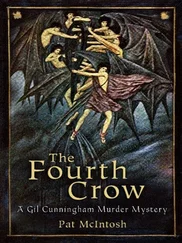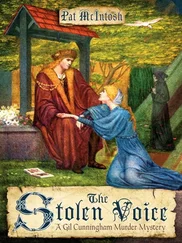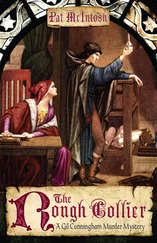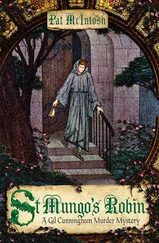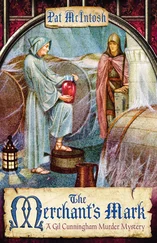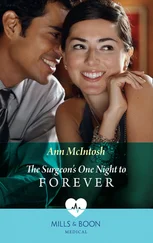Pat McIntosh - The Harper's Quine
Здесь есть возможность читать онлайн «Pat McIntosh - The Harper's Quine» весь текст электронной книги совершенно бесплатно (целиком полную версию без сокращений). В некоторых случаях можно слушать аудио, скачать через торрент в формате fb2 и присутствует краткое содержание. Жанр: Исторический детектив, на английском языке. Описание произведения, (предисловие) а так же отзывы посетителей доступны на портале библиотеки ЛибКат.
- Название:The Harper's Quine
- Автор:
- Жанр:
- Год:неизвестен
- ISBN:нет данных
- Рейтинг книги:5 / 5. Голосов: 1
-
Избранное:Добавить в избранное
- Отзывы:
-
Ваша оценка:
- 100
- 1
- 2
- 3
- 4
- 5
The Harper's Quine: краткое содержание, описание и аннотация
Предлагаем к чтению аннотацию, описание, краткое содержание или предисловие (зависит от того, что написал сам автор книги «The Harper's Quine»). Если вы не нашли необходимую информацию о книге — напишите в комментариях, мы постараемся отыскать её.
The Harper's Quine — читать онлайн бесплатно полную книгу (весь текст) целиком
Ниже представлен текст книги, разбитый по страницам. Система сохранения места последней прочитанной страницы, позволяет с удобством читать онлайн бесплатно книгу «The Harper's Quine», без необходимости каждый раз заново искать на чём Вы остановились. Поставьте закладку, и сможете в любой момент перейти на страницу, на которой закончили чтение.
Интервал:
Закладка:
Pat McIntosh
The Harper's Quine
Chapter One
Glasgow, 1492
At the May Day dancing at Glasgow Cross, Gilbert Cunningham saw not only the woman who was going to be murdered, but her murderer as well.
Strictly speaking, he should not have been there. Instead he should have been with his colleagues in the cathedral library, formulating a petition for annulment on grounds which were quite possibly spurious, but shortly after noon he had abandoned that, tidied his books into a neat stack in his carrel, with Hay on Marriage on the top, and walked out. A few heads turned as he went, but nobody spoke.
Descending the wheel stair, past the silent chambers of the diocesan court, he stepped out into the warm day enjoying the feeling of playing truant and closed the heavy door without stopping to read the notices nailed to it. The kirkyard was busy with people playing May-games, running, catching, shrieking with laughter. Gil went out, past the wall of the Archbishop’s castle, and jumped the Girth Burn ignoring the stepping stones. From here, already, he could hear the thud, thud of the big drum, like the muffled beat for a hanging.
There was plenty of movement in the steep curving High Street too. Weary couples, some still smelling of smoke from the bonfires, were returning home in the sunshine with their wilting branches. Others, an honest day’s work at least attempted, were hurrying from the little thatched cottages to join the fun. Hens and dogs ran among the feet of the revellers, and a tethered pig outside one door had a wide empty space round it.
Further down, where the slope eased and the houses were bigger, a group of students were playing football under the windows of the shabby University building, shouting at each other in mixed Latin and Scots. Gil nodded to the solemn Dominican who was guarding the pile of red and blue gowns, and skirted the game carefully with the other passers-by. Beyond the noise of the players and onlookers he could hear the drum again, together with the patter of the tabor and a confused sound of loud instruments which came to a halt as he drew near to the Tolbooth.
At the Mercat Cross there was dapping and laughter. The dancers were still in the centre of the crossing, surrounded by a great crowd. More people lined the timber galleries of the houses, shouting encouragement, and several ale-wives who had brought barrels of ale down on handcarts were-doing a brisk trade.
The burgh minstrels on the Tolbooth steps, resplendent in their blue coats under an arch of hawthorn branches, had added a man with a pipe and tabor and a bagpiper to the usual three shawms and a bombard. As Gil reached the mouth of the High Street they struck up a cheerful noise just recognizable as ‘The Battle of Harlaw’.
‘A strange choice for the May dancing,’ he remarked to the man next to him, a stout burgess in a good cloth gown with his wife on his arm. ‘Oh, it’s yourself, Serjeant,’ he added, recognizing the burgh’s chief lawkeeper. ‘Good day to you, Mistress Anderson.’
Mistress Anderson, more widely known as Mally Bowen the burgh layer-out, bobbed him a neat curtsy, the long ends of her linen kerchief swinging, and smiled.
‘The piper only has the two tunes,’ explained Serjeant Anderson, ‘that and “The Gowans are Gay”, and they’ve just played the other.’
‘I see,’ said Gil, looking over the heads at the top dancers advancing to salute their partners, while more couples pushed and dragged one another into position further down the dance. By the time all were in place the top few were already linking arms and whirling round with wild war-cries. A far cry from Aristotle’s ideal, he thought.
‘It’s a cheery sound, yon,’ said Gil’s neighbour in his stately way. Gil nodded, still watching the dancers. Most were in holiday clothes, some in fantastic costume from the pageant, or with bright bunches of ribbon or scraps of satin attached to their sleeves. Many of the girls, their hair loose down their backs, were garlanded with green leaves and flowers, and their married sisters had added ribbons to their linen headdresses. Students from the College, sons of burgesses in woollen, prentice lads in homespun, swung and stamped to the raucous music.
Watching a pair of students in their narrow belted gowns, crossing hands with two girls who must be sisters, Gil tried to reckon when he had last danced at the Cross himself. It must be eight years, he decided, because when he first returned to Scotland his grief and shock had kept him away, and last year he had been hard at work for his uncle on some case or other. He found his foot tapping.
‘See her,’ said the serjeant, indicating a bouncing, blackbrowed girl just arming with a lad in brown doublet and striped hose. ‘Back of her gown’s all green. Would ye take a wager she’s doing penance for last night’s work next Candlemas, eh, Maister Cunningham?’
‘Oh, John!’ said his wife reproachfully.
‘She’ll not be the only one, if so,’ Gil observed, grinning. ‘There’s a few green gowns here this morning.’
‘And I’ll wager, this time o’ year, Maister Cunningham, you wish you were no a priest,’ added the serjeant, winking slyly up at Gil.
‘Now, John!’
‘I’m not a priest,’ said Gil. Not yet, said something at the back of his mind, as he felt the familiar sinking chill in his stomach. When the man looked sceptically at his black jerkin and hose, he added reluctantly, ‘I’m a man of law.’
‘Oh, so I’ve heard said. You’ll excuse me, maister,’ said Serjeant Anderson. ‘I’ll leave ye, afore ye charge me for the time of day. Come on, hen.’
‘I’m at leisure today,’ Gil said, but the serjeant had drawn his wife away. Gil shrugged, and turned his attention back to the dancing. The couple he had been watching had completed their turn of the dance and were laughing together, the boy reaching a large rough hand to tug at the girl’s garland of flowers. She squealed, and ducked away, and just then the tune reached an identifiable end and the musicians paused for breath. The man banging the big drum kept on going until the tenor shawm kicked him. He stopped, blinking, and the dancers milled to a halt.
Gil took advantage of the general movement to climb a few steps up the nearest fore-stair, where several people were already perched out of reach of the elbows and feet of the mob.
‘More!’ shouted someone. ‘Anther tune!’
The band made its reluctance clear. A short argument developed, until someone else shouted, The harper — fetch the harper!’
‘Aye, the harper!’ agreed several voices at once. The cry was taken up, and the band filed down the steps, carrying its instruments, and headed purposefully for the nearest ale-wife’s trestle.
‘This will be good,’ said someone beside Gil. He looked round, and found the next step occupied by a tall, slender girl with a direct brown gaze above a narrow hatchet of a nose. ‘The harper,’ she added. ‘Have you heard him? He has two women that sing.’
‘No, I haven’t,’ he admitted, gazing appreciatively.
‘They sang Greysteil at the Provost’s house at Yule.’
‘What, the whole of it? All four thousand lines?’
She nodded. ‘It took all afternoon. It was Candlemas before the tune went out of my head.’
‘I have never heard it complete. There can’t be many singers could perform it like that.’
‘They took turns,’ she explained, ‘so neither voice got tired, and I suppose neither needed to learn the whole thing. One of them had her baby with her, so she had to stop to nurse it.’
‘What about the audience?’ said Gil.
The brown eyes danced. ‘We could come and go,’ she pointed out. ‘I noticed the Provost found duties elsewhere in his house.’
Читать дальшеИнтервал:
Закладка:
Похожие книги на «The Harper's Quine»
Представляем Вашему вниманию похожие книги на «The Harper's Quine» списком для выбора. Мы отобрали схожую по названию и смыслу литературу в надежде предоставить читателям больше вариантов отыскать новые, интересные, ещё непрочитанные произведения.
Обсуждение, отзывы о книге «The Harper's Quine» и просто собственные мнения читателей. Оставьте ваши комментарии, напишите, что Вы думаете о произведении, его смысле или главных героях. Укажите что конкретно понравилось, а что нет, и почему Вы так считаете.


